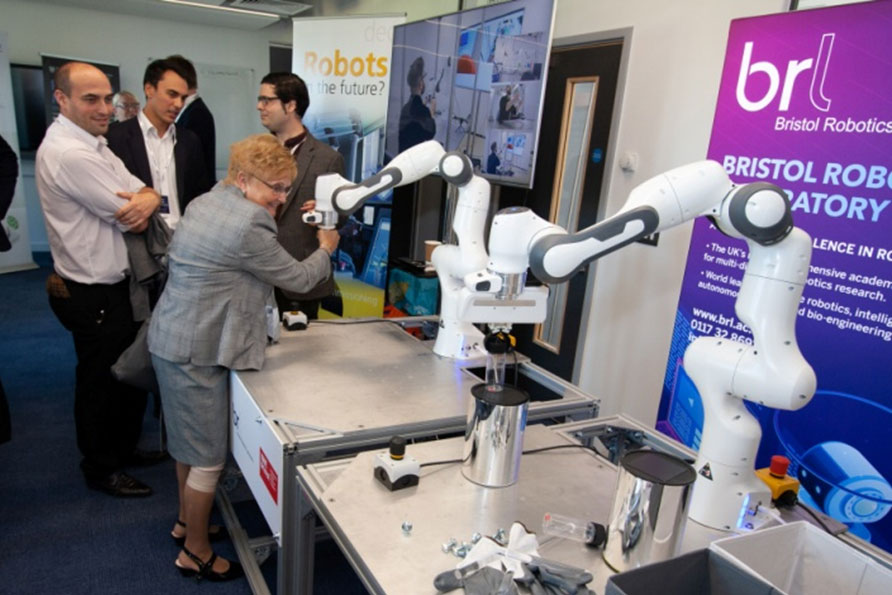The 4th Nuclear South West Conference was held in Somerset this year, over two days with the aim of showcasing the capability and capacity of the regional supply chain, and providing further visibility of the opportunities currently available on the HPC project and other areas of the nuclear life cycle, not just now but in the medium term future as well.
On day one a stream of people headed for buses to tour the HPC site and see at first hand the amazing spectacle of this huge construction site. Dominating the sky line is Big Carl, the largest crane in the world, dwarfing the 30 or so tower cranes alongside him. Over 2,000 people are currently working on site on what is the 3rd year of this project, and are aiming to have the first of the 2 reactors under construction generating electricity by 2025.
Next stop was the National College for Nuclear at Cannington, where delegates saw the variety of apprenticeship programmes that are being delivered to provide for all aspects of the nuclear life-cycle – from the utilisation of VR technology and robotics for waste management and decommissioning, to the full-scale training operations of the EPR units.. The half scale flow loop constructed by local firm Berry & Escott attracted a lot of interest as did all the other demonstrations of south west capability.
On day two 200 delegates arrived at the McMillan Theatre in Bridgwater to listen to a great line-up of speakers which included Simon Parsons head of the MEH (mechanical, electrical, heating and ventilation) Alliance that has been set up to deliver the next very significant stage of HPC.
With 90 Tier 1 contractors now delivering 100s of million pounds worth of contracts, more of the multiple Tier 2 supply chain contracts in MEH (mechanical, engineering and HVAC) needed to deliver this once-in-a-generation plant are being made available. This provides significant high value opportunities for the UK supply chain, which south west companies should be well placed to access.
Chair of Nuclear South West Matt Burley in his opening address at the Conference said: “The opportunity for local and South West suppliers is both large and complex but we the excellent solution of the Hinkley Supply Chain Team in place to manage that.â€
The Hinkley Supply Chain Enabling Team, run by a consortia of SWMAS, Somerset Chamber and Business West is currently funded by this LEP, the West of England CA and the Welsh Government.
Andy Storer (CEO of the Nuclear Advanced Manufacturing Research Centre) who chairs the Nuclear Sector Deal Group Winning UK Business and Export, reiterated in his presentation the importance to build the capability of the local supply chain to enable them to capture work in some potentially very lucrative export markets. David Ralph also echoed this and urged the Sector Deal negotiations around funding on-going supply chain support in the regions to reach a swift conclusion so that this important activity could be continued and those opportunities grasped.
Tom Greatrex (CEO of the Nuclear Industry Association) provided valuable insights in terms of global energy consumption and production, and emphasised that nuclear has to play a role within the energy mix to reach the net zero carbon emission targets.
There was a host of other diverse and informative speakers who gave an insight into the global overview of the industry from new build to decommissioning and innovation in nuclear. These included Professor Tom Scott, Director of South West Nuclear Hub, Beccy Pleasant, head of Nuclear Skills for the Nuclear Skills Strategy Group (NSSG) and Martin Goodfellow from Rolls Royce.
For further information on Nuclear South West or joining the Hinkley Supply Chain please go to www.nuclearsouthwest.co.uk



